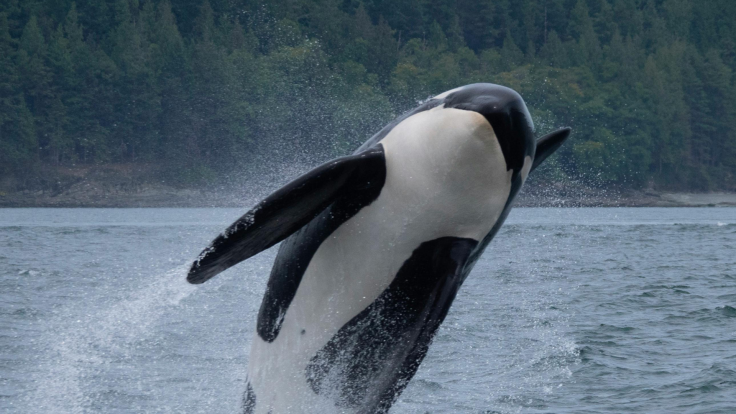Scientists Reveal Surprising Reason Why Killer Whales Have Been Attacking Boats: 'They Aren't Targeting Humans'
Experts reveal orca boat attacks are not acts of aggression toward people but linked to curiosity and social learning.

A surge in orca boat attacks off Spain and Portugal has left sailors anxious and researchers fascinated, as the critically endangeredIberian killer whales continue to ram rudders and disable yachts in the Strait of Gibraltar and along the Atlantic coast.
Since 2020, authorities have logged more than 650 encounters and six confirmed yacht sinkings, pushing the phenomenon into global headlines.
Experts now believe these orca encounters in 2025 reveal playful and socially transmitted behaviour rather than any deliberate attempt to harm humans.
Surge In Orca Encounters Along The Iberian Coast
Reports of killer whales interacting with boats have escalated sharply. The Atlantic Orca Working Group says most incidents involve orcas breaking or jamming rudders, leaving vessels adrift until towed.
On 13 September 2025, a tourist yacht carrying five people sank near Fonte da Telha, Portugal, after being repeatedly struck by orcas. All aboard were rescued safely and no injuries were reported. On the same day, another boat in Cascais Bay was struck; four people were rescued and likewise reported unharmed.
Orca tosses around sailing boat, which ultimately sinks off of Portugal pic.twitter.com/ifUymcajXm
— Nature is Amazing ☘️ (@AMAZlNGNATURE) September 19, 2025
Spanish and Portuguese maritime authorities have since issued warnings urging skippers to reduce speed or cut engines if approached by orcas and to avoid known hotspots during peak migration season.
Scientists Dismiss Aggression Towards Humans
Marine biologists emphasise that the orcas are not targeting humans. The US National Oceanic and Atmospheric Administration (NOAA) highlights that killer whales are capable of cultural learning, with pods passing behaviours through generations.
Researchers monitoring Iberian pods say younger whales appear to mimic older individuals, turning rudders into interactive objects.
Some scientists have suggested that food availability, such as changes in tuna stock, might play a role, but consensus points towards playful, exploratory behaviour rather than aggression.
Viral TikTok clips of whales circling yachts have amplified global attention, though experts caution that words like 'attack' are misleading, given no humans have been harmed.
Conservation Concerns For Endangered Iberian Orcas
The Iberian killer whale population is listed as critically endangered by the International Union for Conservation of Nature (IUCN), with fewer than 40 individuals remaining.
Conservationists fear retaliatory measures could accelerate their decline. Experts argue that aggressive deterrents would be disproportionate, given the lack of injuries to people.
Nevertheless, yacht owners face mounting costs, with repairs often running into tens of thousands of pounds, and rescue operations are becoming more frequent.
Monitoring and Mitigation Efforts
Scientists are stepping up research, tagging individual whales and using photo-identification to determine whether specific orcas are leading the behaviour. Engineers are trialling rudder modifications to reduce damage during encounters.
Authorities predict that orca boat strikes will continue during seasonal migrations. Sailors are encouraged to report encounters with GPS data to help map high-risk areas and inform mitigation strategies.
Rethinking Human–Orca Relations
Experts say the phenomenon underscores the cultural complexity of orcas, whose intelligence rivals that of primates. Rather than interpreting the behaviour as malicious, researchers argue it shows curiosity and social learning within the pod.
While viral footage of yachts sinking has captured public imagination, scientists insist the whales are not hunting humans.
As one researcher put it: 'They're curious, they're playful — and for now, boats have become their toys.'
© Copyright IBTimes 2025. All rights reserved.





















